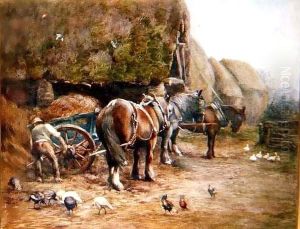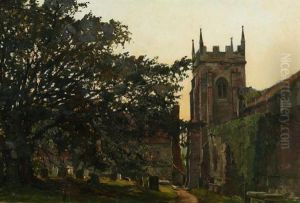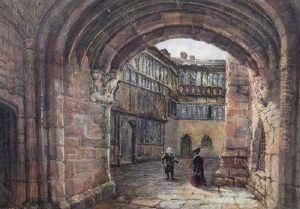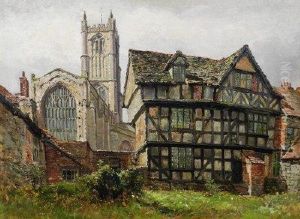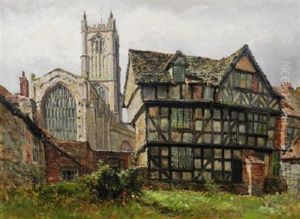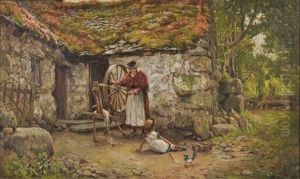Oliver Baker Paintings
Oliver Baker was an English artist, known primarily for his work as a silversmith and metalworker, as well as for his contributions to the Arts and Crafts Movement. Born in Birmingham, England, in 1856, Baker was part of a generation of artists who reacted against the industrialization of the 19th century and sought to revive handcraftsmanship and traditional techniques.
During his career, Baker was associated with the Birmingham Guild of Handicraft, which was an influential group of artists and craftsmen that aimed to produce high-quality, handcrafted items and to provide good design for ordinary people. His work included a range of decorative arts, from jewelry to tableware and ecclesiastical items, characterized by their meticulous craftsmanship and often incorporating motifs from nature.
Baker's contribution to the Arts and Crafts Movement was significant in promoting the philosophy of beauty in everyday objects, created through traditional means. His legacy includes not only his creations but also his influence on younger generations of craftsmen and designers who carried the principles of the movement into the 20th century.
Oliver Baker passed away in 1939, leaving behind a body of work that is still appreciated today for its quality and aesthetic value. His life spanned an era of great change, and through his art, he sought to preserve the human touch and artistry that the modern world was rapidly leaving behind.
